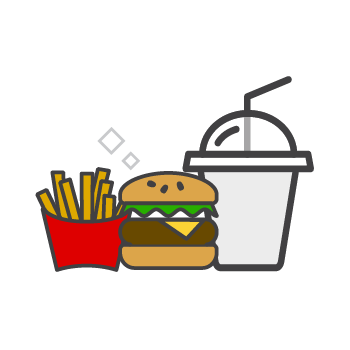Healthy Alphabet: M is for…Five Foods that are Good for You
by Karen Rollins Jan 6, 2020

We are constantly bombarded with information about what we should and shouldn’t be eating which can become confusing.
Yello has decided to go for a simple approach and provide an alphabetical guide to some of the healthiest foods you can add to your diet.
We’ll be going from A-Z and listing up to five fruits and vegetables that are packed with minerals and vitamins while also providing nutritional facts on their health benefits.
We’ve looked at A-L. Let’s explore M.
Macadamia nuts
Macadamia nuts are native to Australia. They are large, creamy white and oily and packed full of healthy, monounsaturated fats.
Monounsaturated fats help lower cholesterol and decrease your risk of heart disease and stroke.
Macadamia nuts are also cholesterol free and a great source of protein, iron, riboflavin, thiamine, and niacin. You only need a handful of macadamias to get the benefits.
Nutrition facts (one cup of raw nuts):
*962 calories (48% of daily value (DV))
*11.5 grams of dietary fibre (46% DV))
*10.6 grams of protein (21% DV)
*4.9 milligrams (mg) of iron (27% DV)
*1.0 mg of copper (51% DV)
*5.5 mg of manganese (277% DV)
*1.6 mg of thiamin (107% DV)
*6.1 grams of sugar
Mackerel
Mackerel is an oily fish and therefore a good source of omega-3 fatty acids. Omega-3 fatty acids are important for healthy brain and heart function and boost the body’s anti-inflammatory mechanisms.
Mackerel also contains a significant amount of protein, vitamin B12 and selenium which is an essential mineral that helps maintain a healthy immune system.
There are several species of mackerel including the King, Spanish and Atlantic mackerel.
Nutrition facts (one can):
*563 calories (28% DV)
*83.7 grams of protein (167% DV)
*1563 international units (IU) vitamin A (31% DV)
*910 IU of vitamin D (227% DV)
*25.1 micrograms (mcg) of vitamin B12 (418% DV)
*136 mcg of selenium (194% DV)
*1087 mg of phosphorus (109% DV)
Mandarins
Mandarins are a small, sweet citrus fruit which can be bought unpeeled or pre-packaged in water or syrup.
Mandarins have been cultivated in China for over 3,000 years. They were often reserved for the privileged class and the name is said to have derived from the bright orange robes worn by public officials of the ancient Chinese court known as Mandarins.
China is the largest consumer and exporter of the fruit. It produces more that 12 million tonnes of mandarins each year.
Nutrition facts (one medium mandarin):
*46.6 calories
*1.6 grams of dietary fibre (6% DV)
*9.3 grams of sugar
*23.5 mg of vitamin C (39% DV)
*599 IU of vitamin A (12% DV)
*146 mg of potassium (4% DV)
*14.1 mcg of folate (4% DV)
*10.6 mg of magnesium (3% DV)
Mangoes
Mangoes are native to India where they’ve been cultivated for about 5,000 years.
They are are a versatile and succulent fruit which can be found in jellies, jams, pickles and sauces. Mangoes aren’t just delicious; they’re also loaded with nutrients, minerals, and antioxidants which are good for you as part of a healthy, balanced diet.
The best way to tell whether a mango is ripe is to smell it – if it has a sweet fragrance, and the flesh gives slightly when you press it, it’s ready to eat!
Nutrition facts (one mango):
*135 calories
*3.7 grams of dietary fibre (15% DV)
*30.6 grams of sugar
*57.3 mg of vitamin C (96% DV)
*1584 IU of vitamin A (32% DV)
*0.2 mg of copper (11% DV)
*18.6 mg of magnesium (5% DV)
*0.3 mg of vitamin B6 (14% DV).
Mushrooms (white)
There are many types of mushroom including brown, shiitake, oyster and portobello but the most common is the white variety.
Mushrooms are fungi which are cooked like vegetables. They are a versatile food that can be roasted, sautéed or grilled and eaten for breakfast, lunch or dinner.
They are low in calories and carbohydrates but full of vitamins and minerals such as copper, vitamin B3, and potassium.
Nutrition facts (one cup of whole mushrooms)
*21.1 calories
*0.1 grams of dietary fibre (4% DV)
*17.3 IU of vitamin D (4% DV)
*3.0 grams of protein (6% DV)
*0.4 mg of riboflavin (23% DV)
*15.4 mcg of folate (4% DV)
*0.3 mg of copper (14% DV)
*305 mg of potassium (9% DV)
Watch out for the rest of the healthy food alphabet in this series to be published on Find Yello, and click to take a look at the previous A, B, C, D, E, F, G, H, I, J, K and L articles.
Sources: The Food Coach / Nutrition Data / Everyday Health / Nutrition Advance / The Spruce Eats / Very well fit








